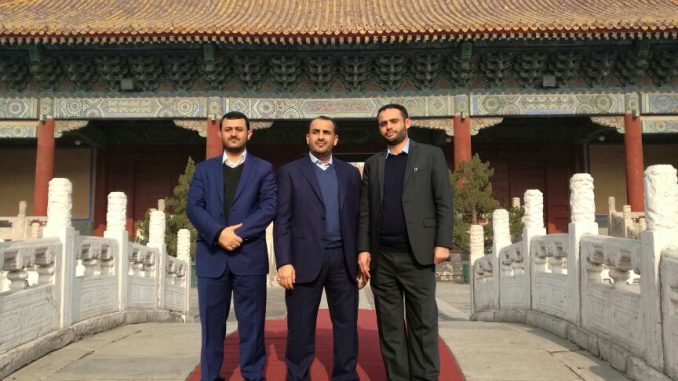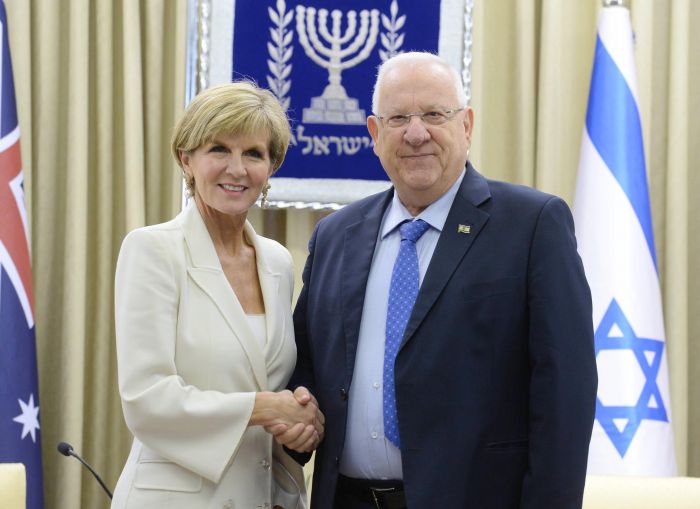
A delegation from the Yemeni Houthi Ansarullah movement has traveled to China on a 3-day visit to hold talks with senior officials over the conflict in their country.
The visit which was described by the pro-Houthi Al-Masirah television channel. as “a mysterious visit but a chance to show the Saudi military aggression, came days after the Houthi rebels have formed with their allies a new government rejected by all the international parties except Iran, the Houthis’ supporter.
According to the pro-Houthis media platforms, the Houthi delegation, headed by Ansarullah spokesman Mohammad Abdulsalam, arrived in Beijing on Thursday at the invitation of the Chinese government.
“The delegation included senior Ansarullah figures such as Hamza al-Houthi and Mahdi al-Mashat, and they focused in their negotiations with the Chineses on the bilateral political relations, resolving the conflict in Yemen and China’s support in settling problems”, outlined Al-Masirah television channel.
Also, Anadolu Agency had reported that the Houthi delegation members met with Deng Li, director-general of the Chinese Foreign Ministry’s department for West Asian and North African Affairs.
Does China have a role in the war in Yemen?
According to Al-Masdr News, China has consistently made calls that the crisis in Yemen, as well as Syria, should be resolved through political dialogue rather than military means.
This situation is in parallel to the Chinese aim in Yemen which is consists on the protection of economic investment and the safety of Chinese personnel.
In an analysis published by Al-Jazeera center for studies,in June 2105, China had 14 enterprises and 460 personnel in Yemen.
In response to the Yemen crisis, China has finished personnel evacuation and temporarily closed its embassy since April 2015.
But, following the facts, China is a strong ally of Iran and a friend of the Kingdom of Saudi Arabia, and perhaps Chineses invited Houthis to talks in order to led the role of mediator to resolve the ongoing conflict.
It is noteworthy that China since April 2015 had told Saudi Arabia that efforts should be stepped up to seek a political solution to the crisis in Yemen.
China’s policies in the war in Yemen
It seems that China works with all parties for its interests in order to reach peace and relaunch the Chinese economics in Yemen.
At the same time in which China is hosting Houthis and enforces its relationships with Iran, it works with Saudi Arabia that led a coalition against Houthis in Yemen, to strength its relationship.
Last October, China conducted its first joint counter-terrorism drills with Saudi Arabia in the southern Chinese city of Chongqing., and according to The diplomat China once seemed to rush to replace the United States as Riyadh’s top oil importer.
Also, China promised more than that with Saudi Arabia. Since 2013, Beijing had championed its “One Belt, One Road” policy of promoting trade with historical Silk Road trade partners in faraway West Asia.
For Iran, it is known that the developing economic, political and military links with China, make them a Golden Triangle in Eurasia.
Late Wednesday, Mehr News Agency reported that the Iranian Foreign Minister Mohammad Javad Zarif will pay a visit to India, China and Japan in coming days.
Bahram Ghasemi , Iranian FM spokesman said that Zarif will fly to China and Japan at the invitation of his Chinese and Japanese counterparts Wang Yi and Fumio Kishida, respectively.
“Iranian Foreign Minister will hold talks with senior officials of the two countries and to take part in joint business forums” Ghasemi underlined.
According to Veterans Today, during a high-level visit of the Chinese Defense Minister, General Chang Wanquan, last November to Tehran, he signed with Iranian President Hassan Rouhani and Iranian Defense Minister Hossein Dehghan, a deal to enhance military cooperation.
The agreement calls for the intensification of bilateral military training and closer cooperation on what the Iran sees as regional security issues, with terrorism and Syria at the top of the list.
A Neutral policy with all parties is also appeared in Yemen conflict, for example, Saudis had used Chinese made cannons to fight Iran’s allies.
“Over 200 PLZ-45 SPHs have been sold by Chinese defense contractors NORINCO weapons manufacturer to Algeria, Kuwait, and Saudi Arabia. These countries have chosen more capable Chinese made artillery to take the lead in Operation Decisive Storm, the Arab intervention in Yemen”, said Popular Science American news website in April 2015.
Also, IHS Jane’s Defence military magazine reported in December 2015 that Saudi Arabia and the United Arab Emirates have both acquired Chinese-made unmanned aerial vehicles to meet urgent operational requirements arising from their military intervention in Yemen.
“The drones the UAE is using in Yemen are Chinese because they failed to get US approval,” US Marine Corps General (retired) James L Jones said, quoted IHS Jane in its report.
Following Wikistrat, the stability of the regional oil export industry and the security of maritime passageways are critical to China’s continued economic growth, and this might explain China’s policies of building neutral relationships with all the international parties.
“Beijing’s support for conflict-termination efforts will focus less on the speed of success and more on its long-term sustainability”, reported the previous website.



